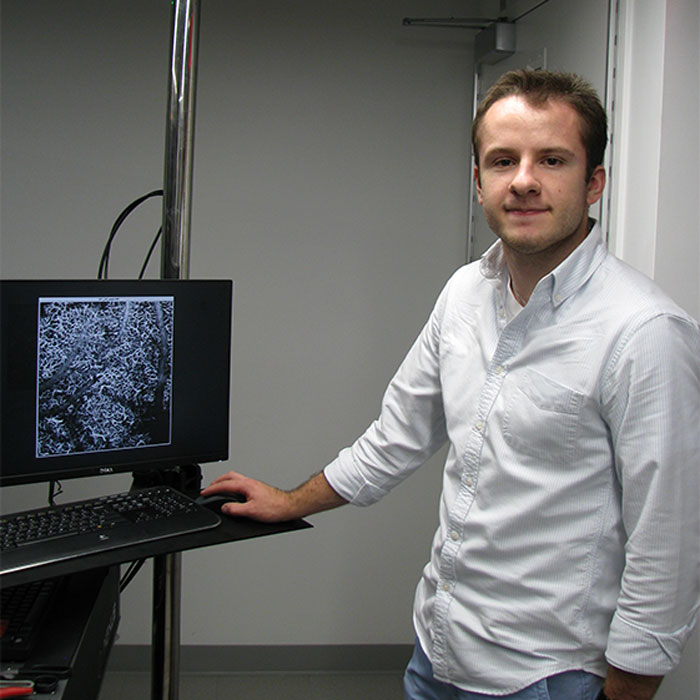Major/concentration and Graduation Year.
Neuroscience, 2018.
Where are you from?
Detroit, Michigan
What were your academic interests in high school?
Anatomy, physiology, astronomy, geology, magnetism, optics
What is your favorite activity outside of the classroom?
Taekwondo
Why did you decide to pursue research in brain science?
My research interests are specifically in understanding the mechanism and progression of Alzheimer's disease (AD). AD is the sixth leading cause of death in the US and the only leading cause with no disease-altering treatment currently available. Current estimates suggest that 1 of every 2 people who reach the age of 85 will develop AD. This interest stems from a personal encounter with AD - 7 years ago, I saw my great uncle suffer through a very aggressive case of AD that essentially stripped him of all quality of life within just 2 years. Since then, understanding this disease further and helping those who experience it has been the goal of much of my academic, volunteer, and professional work.
What research project and laboratory did you work in?
Working with Dr. Jonghwan Lee from the Department of Biomedical Engineering, I designed and began a project studying longitudinal changes in vascular structure and hemodynamics in the cerebral cortex of Alzheimer's disease model mice using in vivo optical coherence tomography (OCT) imaging.
What is your most memorable experience from your training in brain science?
In order to image the cortex using OCT, it is necessary to remove a small piece of the skull and replace it with a glass window. Therefore, I was trained to perform survival craniotomy on mice through this research opportunity. My long-term goal is to become a neurosurgeon, so this was a very exciting small-scale preview of the work that I will be doing in the future.
What have you learned from this experience that you are applying to other aspects of your Brown degree?
Lab work is highly rewarding because it is unpredictable, particularly when working with animals and novel imaging systems. Rapid problem assessment and problem solving while remaining calm under pressure are skills that I trained extensively over the summer. For example, I trained to react quickly to stop unexpected bleeding during surgery. As another example, towards the end of the summer the imaging seemed to worsen as motion artifacts distorted our images. In correcting the situation, we made an unexpected discovery: nearly-undetectable background vibrations from the building were being improperly dampened and transferred to our images. The ability to assess issues quickly, calmly, and accurately is important not just for this research but to all aspects of life, and I will be able to apply this to my current classes, my work towards my senior thesis, and my future career.
What would you like to do after graduating?
Through the Program in Liberal Medical Education, I will be starting at Alpert Medical School in Fall 2018. I will continue to do research with Dr. Lee as well as with other groups studying Alzheimer's disease. After completing my MD, I plan enter residency in neurosurgery.
